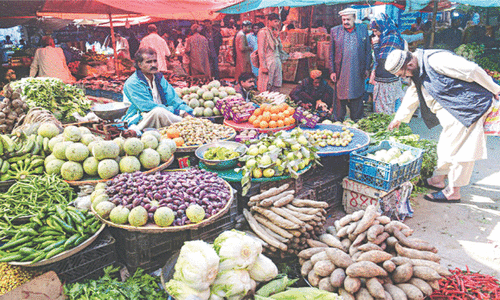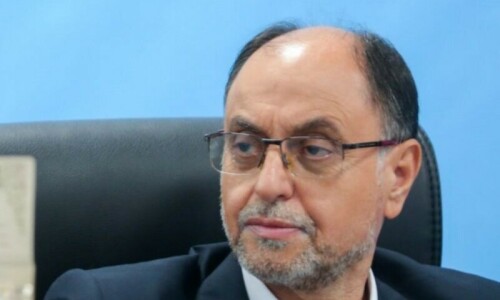RIYADH, May 15: Calls from Saudi Arabia, the UAE, Kuwait and even Iran to increase the Opec output quota, by somewhere around 1.5-2 million bpd from the current 23.5 million bpd, may not make much difference in the oil markets.
Opec is already over producing by somewhere between that figure and the decision to increase the quota may just formalize the overproduction. The bull run continues.
The oil prices are already at their highest levels since 1990 first Gulf war. This is thus despite the fact that Opec has virtually opened its taps, signifying an issue deeper than just the question of supply and demand.
To many, the global energy markets are not heating up because of any cutback in crude supplies to the markets. Unnerved sentiments, due to a host of reasons, are acting the other way and are to be blamed for the current rise in market prices, many here strongly believe.
There is a definite concern in the market, and not without any basis, about the security of supplies from this prime oil producing region. Allied with the lack of refining capacity in its biggest market - the US, the galloping Chinese consumption and speculative trading in oil - the crude markets are indeed faced with a daunting task of balancing. But could Opec be blamed for all this mayhem in the global energy markets, as some are trying to portray?
Opec President Purnomo Yusgiantoro said last Wednesday Opec was currently producing 1.5 million bpd more than its official output limit and strongly contended that there was enough fuel in the market.
To most of the analysts, and as per various market reports, it is more than evident now that despite announcements, April output cuts were never put into implementation by Opec members.
Saudi Arabia is now urging the Opec to increase output quota by 1.5 million bpd to quench the oil thirst. Kuwait and the UAE have been urging to increase the output quota for sometime now.
Indications are that during the Amsterdam meeting of the oil producers and the oil consumers, the Opec ministers may agree to a formal output increase, which later could be formalized during the early June Beirut Opec meeting.
But would it change the market balance? The indications are in fact to the contrary.
UAE Oil Minister Obaid bin Saif al-Nasseri also believes Opec is already is pumping some two million barrels daily in excess of formal limits, largely ignoring the supply curbs that were supposed to come into effect last month.














































Dear visitor, the comments section is undergoing an overhaul and will return soon.